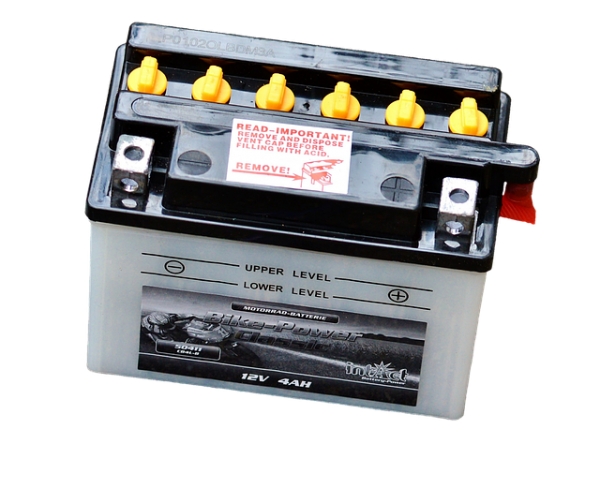Welcome to Crossing Creeks RV Resort & Spa in the heart of iconic Blairsville
Lithium-Ion Batteries: Expensive, But More Efficient, Longer-Lasting Featured
Written by MattLithium Ion batteries, or Li-ion, are a very real upgrade as deep-cycle batteries in your RV. Although more expensive, lithium ion offers a number of advantages over lead acid batteries.
Li-ion technology is young but not new. Li-ion batteries power many cell phones, laptops, power tools, consumer and commercial drones, and gasoline-electric hybrid vehicles.
Li-ion battery advantages:
- Weigh less.
- Are smaller compared with an equal-strength lead acid battery.
- Don’t vent, so they can be stored in more areas than traditional batteries.
- Maintain amperage during discharge.
- Last longer before needing replacement.
- Allow deeper discharges.
- Charge faster, making them more compatible with solar charging.
- Require no maintenance.
- Better resist damage from heat.
- May have smart management systems to prevent damage.
- Use a non-corrosive electrolyte.
Li-Ion battery disadvantages:
- Cost 3 to 5 times more than weaker lead acid battery.
- Can catch fire if damaged.
Price versus Performance
You will pay considerably more to purchase a lithium-ion battery, but over time, costs nearly even out.
Joe O’Connor, a senior application engineer at Mercedes-Benz Energy and author of the book “Off Grid Solar,” wrote on medium.com that the initial cost per kilowatt hour (kWh) with a lead acid battery is $131. For a Li-ion battery, it’s $530—a whopping 400 percent of the cheaper battery’s purchase cost.
But Li-ion batteries cycle 1,000 times for cheaper units to 4,000 times for higher-quality cells before they fall to an 80 percent state of health, compared with just 200 to 1,000 discharges for a lead acid battery. That means they should last years longer. By the time the Li-ion battery needs replacement, its total cost is just 11 percent more than its lead acid counterpart, O’Connor’s figures show.
More Convenient, More Powerful
There’s no question about the convenience of Li-ion compared with lead acid.
Li-ion batteries require no maintenance. There’s no need to top off water as there is in the lead acid battery—a task that’s difficult when batteries are hard to reach. Skip that chore with a lead acid battery, and battery life shortens dramatically.
Lead acid batteries also fail sooner if they are discharged beyond 50 percent. A Li-ion battery can be discharged 80 percent without damage. A Li-ion battery will supply power longer on each charge than a lead acid battery will.
When a Li-ion battery is discharging, there’s much more power on tap—5 times as much available power at constant current as a lead acid battery, according to O’Connor. The available power on lead acid batteries diminishes steadily as the batteries discharge, making them far less efficient in running an RV’s electronics.
Faster Recharging
The fast charging time of a lithium-ion battery is 2 to 4 hours. That’s a fraction of the time needed to recharge a lead acid battery, which is 8 to 16 hours, depending on the quality of the battery.
A Li-ion battery is just more willing to accept a new charge—about 99 percent efficient versus 85 percent for lead acid batteries. That makes Li-ion especially attractive for solar recharging. Solar panels, like Li-ion batteries, involve a high expenditure up front, but they save money over having to recharge with a generator, which needs gasoline or diesel fuel to run and oil for lubrication. With more efficient lithium-ion batteries, a smaller—and cheaper—solar array will be just as efficient as a larger array replenishing lead acid batteries.
The Future
Batteries for off-grid use will continue to shift toward lithium-ion, with a more pronounced move away from lead acid within just a few years. Expect Li-ion prices to drop as more manufacturers enter the market, increasing competition.
Leave a comment
Make sure you enter all the required information, indicated by an asterisk (*). HTML code is not allowed.
